History of leprosy: why humanity has conquered, but not defeated "lazy death"
Categories: Health and Medicine
By Pictolic https://pictolic.com/article/history-of-leprosy-why-humanity-has-conquered-but-not-defeated-lazy-death.htmlLeprosy for thousands of years has existed with the man, causing a chilling fear his unpredictability and ruthlessness. Only in the late 19th century by the Norwegian scientist Gerhard Hansen accidentally solved the mystery of a terrible disease, and discovered the leprosy bacterium. Today we have learned to resist the leprosy, although it is not completely won in South America, Southeast Asia and Africa, the disease still cripples and kills people.
As centuries to build relationships of leprosy and human and why Hansen's disease is studied and driven into the tube, but not destroyed, like smallpox? (Caution! Shocking content).
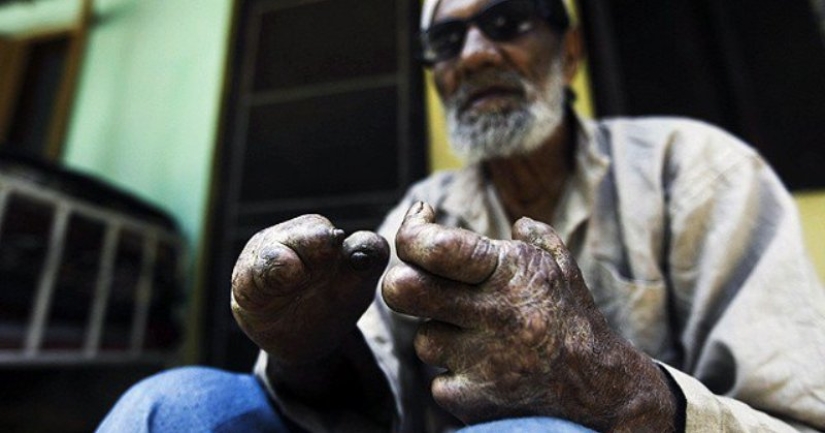
Leprosy is often called the "lazy death", as it, unlike the plague or cholera has not dealt with the man for a few days and killed over the years. The illness maimed and mutilated, robbed of the joy of life and communication, physical activity and feelings, and only then, years later, were killed.
The first mention of leprosy belong to 1550 BC — a disease with symptoms of leprosy mentioned in the "Egyptian papyrus". In addition, wrote about Hippocrates leprosy and, although modern scholars believe that the father of medicine did not distinguish between deadly disease and psoriasis.
About the disease Hansen's writing and Christian sacred texts. The disease appears as a punishment of God in the old and New Testament. It should be noted that among Jews and Christians sick with leprosy was doubly unhappy. He suffered from his illness, and from contempt of others, are confident that the disease is revealed at the profligacy, greed or some other sin.
In the Middle ages lepers equated with heretics, which overtook a punishment from God. According to the Holy fathers, these apostates did not need additional Kare, as was already doomed to unbearable agony. The common people held the same opinions and leprosy was the seal of sin, often not only ill, but also on his family.

With the disease of Hansen, the man was rotting alive, and, besides, he was losing everything that was dear to him. The disease has destroyed the social life of the patient, making him an outcast. The unfortunate expelled not only from home but from town or village, often with his family. For the leper on the neck hung a bell, notifying the district that a man is punished by God and rejected by society.

Like other terrible disease leprosy came in the form of epidemics and then the patients become very much. The biggest outbreaks in history occurred in Europe in the 12th and 13th centuries during the Crusades. In France at that time was about 2,000 leprosariums, and England — 220, which could accommodate up to 1.5 million patients.
Yes, the lepers in the middle Ages there were many — according to the Chronicles, in some areas the number of cases was up to 3 percent of the total population. No matter how terrible a leper colony, but the poor guy was safer than in the wild. Fear of disease and conviction that it not that other, as a punishment for sin, was the cause of the attacks on the sick.

Lepers were considered the living dead, so the most common method of killing was the unfortunate burying alive in the ground. Also they are often burned or drowned in bodies of water like witches and sorcerers. In a leper colony no sane healthy person voluntarily not climb, so patients in their communes and monasteries were relatively safe.

Unlike the plague and cholera leprosy is a very secretive disease. From the moment of infection until the first symptoms can take 10 or even 20 years. The first sign of leprosy be areas on the body that has lost sensitivity. Later the patient limbs start to go numb and at this point it is important to begin intensive treatment. If you miss the moment — there will be irreversible damage to the peripheral nerves and they become paralyzed.
But before that the body is attacked by a host of secondary infections that affect the eyes, skin, bones and cartilage. The phalanges of the patient affects the necrosis and they die off one by one, a person takes an awesome view (so-called "lion's face"), and the skin cover the sores.
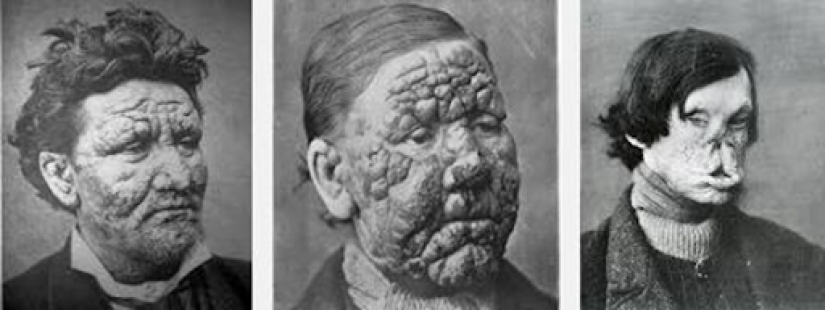
The causative agent of leprosy — Mycobacterium leprae, Mycobacterium leprae, does not apply to microorganisms-killers like cholera or the plague Bacillus. Outside of the human body leprosy can not live, therefore not in her best interest to kill its prey. But Hansen's disease upsets the natural protective mechanisms of the human body, making it vulnerable to many infections. They cause death of the patient with leprosy.
People affected by bacteria, it becomes a source of infection for others. In a special risk group includes people in poor countries who are malnourished, live in unsanitary conditions and have weakened immune systems. The bacterium enters the body of his victim, most often through the upper respiratory tract.
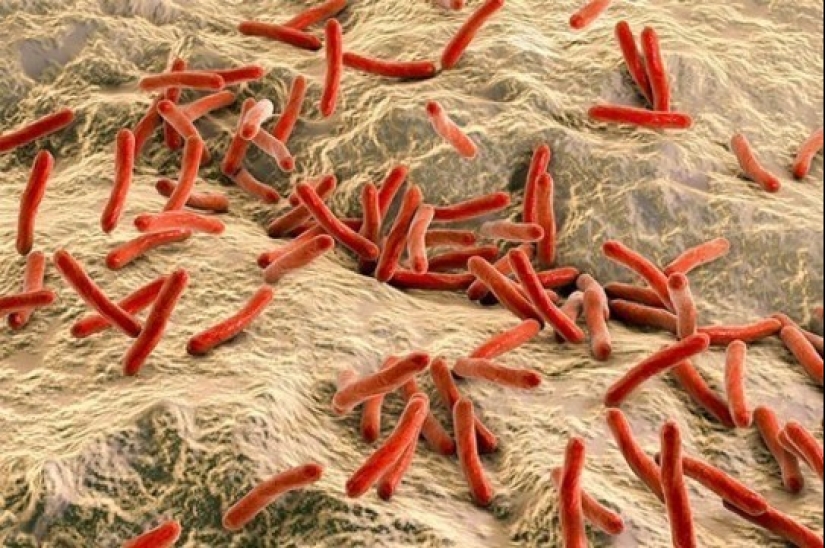
It looks like Mycobacterium leprae
It is important to remember that leprosy, though, and applies to infectious diseases, is not considered is highly contagious. Scientists have found that a single contact with the patient, even when shaking hands, rarely becomes the cause of the infection. Also leprosy is not transmitted sexually, and even from the sick mother to child in the womb.
Leprosy will not go away and Mycobacterium leprae still lives with us. Vaccination against leprosy does not exist and completely cure these patients, modern medicine can only at the initial stage of the disease. So why now there is no epidemic of "lazy death" as a century ago? Can bacteria over time mutated and weakened?
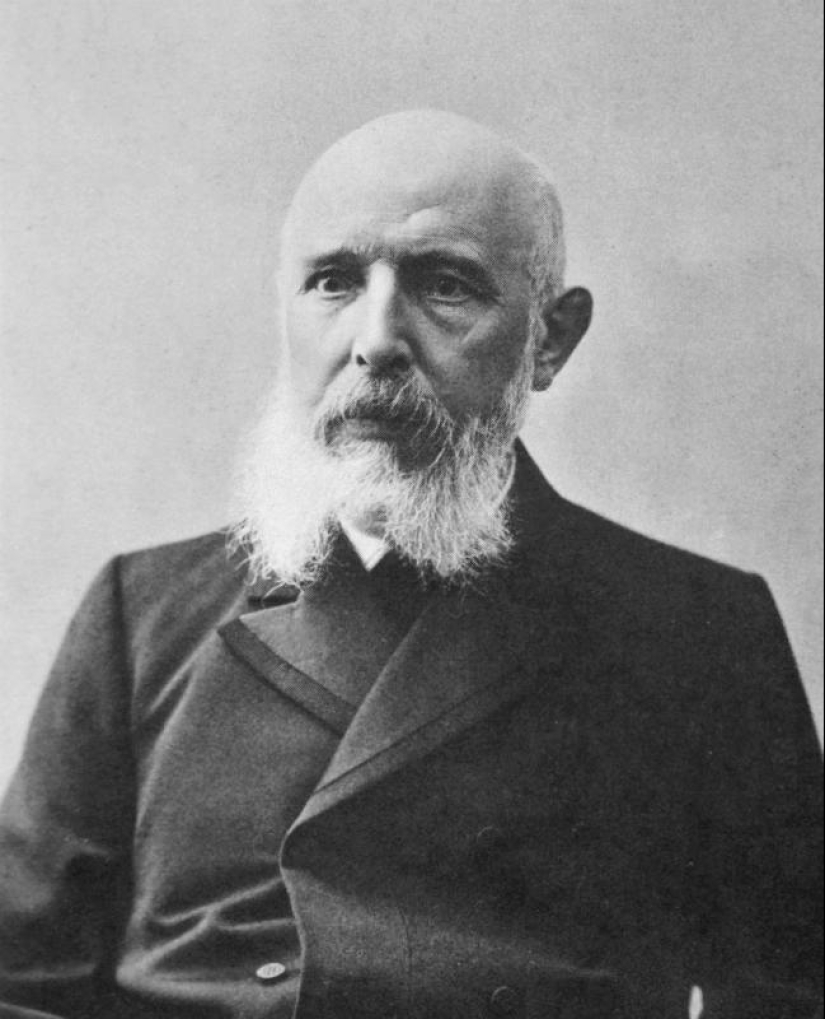
Dr. Gerhard Hansen (1841-1912)
Microbiologists have established that leprosy no global changes occurred and Mycobacterium over the centuries has preserved its genome. But mankind has changed. The population of Europe has become much more resistant to disease Hansen, and besides, there are not susceptible to infection people. Has affected millennial dangerous neighborhood that helped to adapt and life-isolation of patients, not leaving offspring.
Before Hansen discovered the causative organism of leprosy, many scientists believed that the disease is inherited. Discoverer of M. leprae gave the scientific justification for the isolation of patients with leprosy, insisting that the disease is not given over and not transmitted from parents, passes from the sick to the healthy by contact.
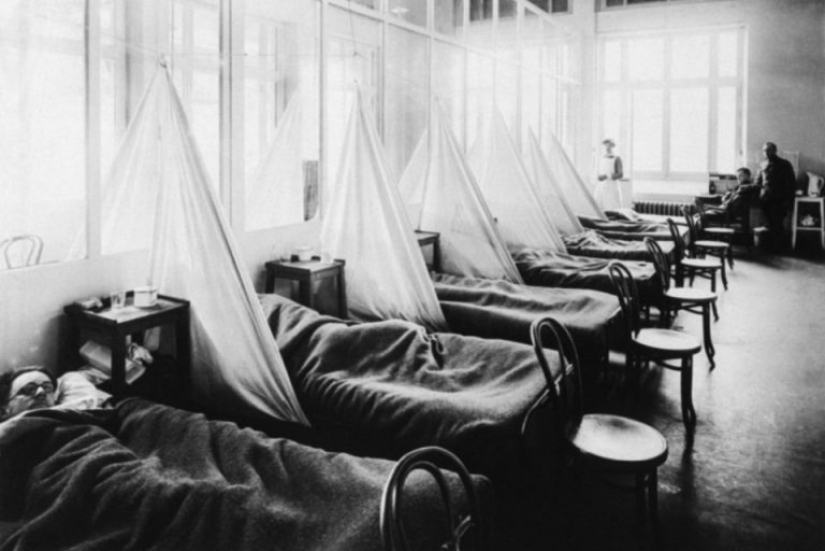
The leper colony of the early 20th century
To the opinion of the doctor listened, and in Norway, the first European countries suffering from leprosy has forbidden freedom of movement. They were supposed to or to be in isolation at home or to give consent to placement in a leper colony. Just a few years, the incidence of leprosy decreased dramatically. After that, the experience of Norway took over several other countries of Europe.
But to treat leprosy, learned only in the 1940s, when scientists had received Promin is the only bactericidal drug that can affect the Mycobacterium leprae. Unfortunately, success was short — already in the 1960s, the years doctors have found that the bacterium M. leprae have adapted to the antibiotic and had to synthesize new substances — clofazimine and rifampicin.

Modern leprosarium in Myanmar
To avoid repetition of the situation with Promin, the doctors began to mix three drugs for leprosy among themselves in different combinations and proportions, to prevent infection to give drug resistant strains.

Low level of education and awareness about the nature of this disease leads to the fact that in some regions of the planet to patients with leprosy are roughly the same as in the 12th century. In many South American countries believe that leprosy is associated with a dissolute lifestyle, and in India and Nepal suffering from the disease are automatically classified into the caste of untouchables.
Fear of losing house, job, family and friends forces patients to lie low and hide his illness. Unfortunately, late diagnosis of Hansen's disease significantly reduces the chance for recovery. This is one of the important reasons why humanity is still not able to defeat the "lazy death."
Keywords: Disease | Infection | Treatment | Germs | Medieval | Church | Epidemic
Post News ArticleRecent articles

It's high time to admit that this whole hipster idea has gone too far. The concept has become so popular that even restaurants have ...

There is a perception that people only use 10% of their brain potential. But the heroes of our review, apparently, found a way to ...
Related articles

According to the who, from diseases related to Smoking, every eight seconds a person dies. The number of deaths per year up to five ...

We all know that allergies can be cats, dogs, chocolate, citrus fruits and pollen. But things that can cause a dangerous reaction, ...

To eat a bowl of chicken soup when you have a fever and runny nose — a great idea, but just as some foods help to get better ...

New Year's is a time to surprise and delight loved ones not only with gifts but also with a unique presentation of the holiday ...